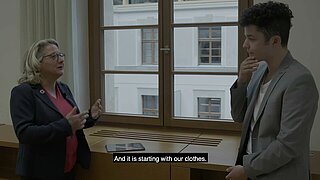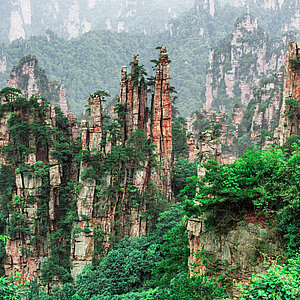Scaling-up biodiversity communication for achieving Aichi Target 1
Aichi Biodiversity Target 1 states that by 2020, at the latest, people should be aware of the values of biodiversity, and the steps they can take to conserve and use it sustainably. The project aimed to inform a billion people about the values of biodiversity and encourage them to take action. Both the Earth Hour and global UN Days related to biodiversity offered opportunities for communication. Online platforms and social media profiles were intended to achieve at least three billion digital views. Particular attention was being given to ten key countries, and the project did also address target groups at high-level events relevant for policymaking. Other target groups included decision-makers, sectors of the economy and young people, who were made aware of the interrelationships between climate change and biodiversity conservation, as well as its preventive role in future zoonotic pandemics.
- Countries
- Brazil, China, Colombia, India, Indonesia, Kenya, Mexico, Peru, South Africa, Viet Nam
- IKI funding
- 4,059,817.00 €
- Duration
- 01/2018 till 05/2023
- Status
- completed
- Implementing organisation
- World Wide Fund for Nature (WWF) - Germany
- Political Partner
-
- Secretariat of the Convention on Biological Diversity (SCBD) - Canada
- Implementing Partner
-
- World Wide Fund for Nature (WWF) - México
- World Wide Fund for Nature (WWF) - Singapur
- World Wide Fund for Nature (WWF) International
- Online
State of implementation/results
- Project completed.
Biodiversity and Nature Themed Days- open source materials were created for three themed days: World Migratory Bird Day, World Food Day, and World Cities Day. The toolkits for these days were posted on the Connect2Earth website (connect2earth.org) and shared with partner organizations and influencers to increase outreach through social media channels.
- A total of 7.06 million digital views were recorded for these three theme days between July and December 2021.
- An audiogram was also produced, as well as an "Untangled" educational video (www.youtube.com/…) explaining the links between food and agriculture, biodiversity loss, and climate change, and how the current negative production cycle could be reversed.
- For the World Health Summit 2021 (World Health Summit), WWF created six audiograms (connect2earth.org/…) with edited sequences of Global Health Talks (explore.panda.org/…) in which renowned experts and scientists from the U.S., Europe, and Africa pointed out various reasons why pandemic prevention is the most important measure against future epidemics and pandemics. Above all, conservation is one of the most relevant prevention measures.
- At a special session of the World Health Assembly, pandemic prevention was negotiated and endorsed as part of a pandemic treaty. In this context, WWF produced two audiograms.
- The IKI project supported the IUCN Congress outreach efforts through a series of video interviews and quotecards (trello.com/…) of official high-level policy makers and influencers speaking at the IUCN Congress. Interviewers were youth from different world regions who were part of the Global Youth Action Team (GYAT). The goal was to support youth voice, highlight their calls to action for 2030, and emphasize the critical role young people play in the policy-making process and implementation.
- The open-source videos and accompanying Quotecards focused on a variety of issues around biodiversity and youth engagement.
Latest Update:
12/2025
Project relations
Legend:
The link has been copied to the clipboard










